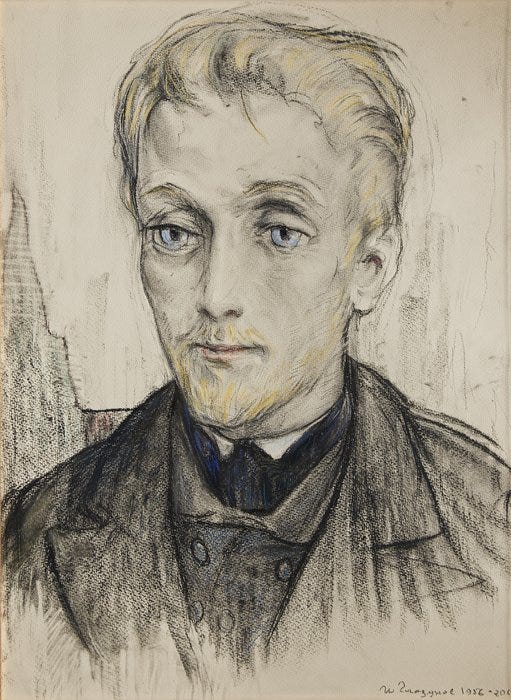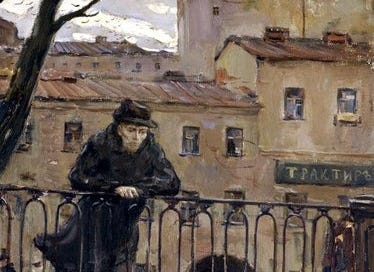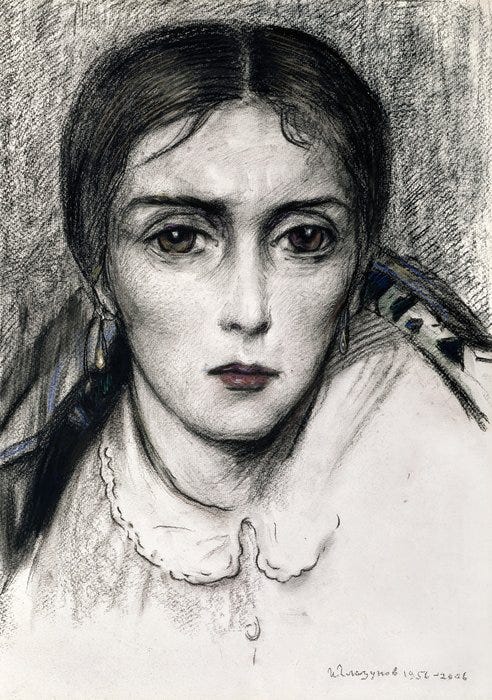Have you ever felt "Idiot"?
Today, I'll share the tips on how to read the second novel (out of the 5 great books of Dostoevsky) with you. And yes, the newsletter is quite long.
Здравствуй. Когда Фёдор Михайлович задумывал [= conceived] второй роман “Идиот”, то хотел осуществить свою мечту [= to realize his dream] и написать о хорошем человеке. He had been working over the very novel for 2 years before finished to publish it completely in 1868 (The journal Russian Messenger published it serially in1868-1869).
Everyone calls the central character idiot. If you read the novel before, could you share your idea with me?
If you haven’t gotten your hands on the book yet, let me clarify something for you.

A mystery of donkey
When the young prince was at the Epanchin house, he recollected a event happened in Switzerland:
«Помню: грусть во мне была нестерпимая; мне даже хотелось плакать; я всё удивлялся и беспокоился: ужасно на меня подействовало, что всё это чужое; это я понял. Чужое меня убивало. Совершенно пробудился я от этого мрака, помню я, вечером, в Базеле, при въезде в Швейцарию, и меня разбудил крик осла на городском рынке. Осёл ужасно поразил меня и необыкновенно почему-то мне понравился, а с тем вместе вдруг в моей голове как бы всё прояснело».
Here I leave for you an English translation to compare some phrases, so you can see how the translation works out sometimes (I highlighted some tricky phrases that don’t sound that… deep or dramatic in Eng. version):
I remember my melancholy was intolerable; I felt inclined to cry; I sat and wondered and wondered uncomfortably; the consciousness that everything was strange weighed terribly upon me; I could understand that it was all foreign and strange. I recollect I awoke from this state for the first time at Basle, one evening; the bray of a donkey aroused me, a donkey in the town market. I saw the donkey and was extremely pleased with it, and from that moment my head seemed to clear.
Чужое убивало меня — All foreign was killing me (direct translation)
Ужасно поразил меня —
поразил —> поражать
We use this verb for a good number of reasons. When we say someone was killed by something (герой был поражён ударом копья); was stricken by an unknown disease (был поражён неизвестным заболеванием); he was defeated (он был поражён). Actually, not in passive voice you can use it only. It also means to paralize someone or… amaze. And here it’s meant that the young prince was stunned.. and somehow he liked him.
Once Myshkin finished, all the sisters started laughting at him noticing that they saw one too. But… where could they see the donkey? It was an outlandish, strange animal for people living in the central part of Russia in the 19th century. If you were living in St. Petersbourg in time of Dostoevsky, you could see the donkey… at the zoo. However, the readers (not only of Dostoevsky) knew, the donkey is a symbol of stupidity. There is a confusion in their conversation: the prince is speaking about an important event in his life and the sisters moking him, literally calling him stupid. We see, he isn’t in a huff, and this scene is the first link in the long chain of his ability to endure unfair insults.
A mystery of doctor B.
…although in original version you read “doctor B-n”. And the reader (even now) easily recognize the name — Botkin. In Russia, the Botkin family has been one the most famous for their members’ talents in art, literature, and science. Still, the majority recalls of one of them only — doctor Sergey Botkin. One of his sisters was married to Afanasy Fet (there is an estate in Kursk region).
«…Чрез две недели я, как мне известно, умру… Мне на прошлой неделе сам Б-н объявил…»
<…> nd I know I shall be dead in a fortnight; Botkine told me so himself last week.
Why did he mention this name, but not anyone’s else if we read later that Hippolyte Terentiev confessed to lie? Sergey Botkin was known as the best at establishing the diagnosis. He even could tell whether a patient had a portal vein thrombosis. Any guesses now, why?
To draw people’s attention.
The little prince is(not) an idiot
“Well, prince, that’s enough to knock me down! It astounds me! Here you are, as simple and innocent as a knight of the golden age, and yet... yet... you read a man’s soul like a psychologist!
Why did Keller say it? Well, he sees that Myshkin идёт навстречу любому [= comes towards (literally); he is sympathetic). The prince doesn’t see his reflection in the objects (“I like it that’s why I see it”); he tries to capture it in its uniqueness (“Everything what I see matters”). The world makes sense to Lev Myshkin, therefore, you can and should comprehend it (you can point at nonsense only).
Because you see through a man somehow.
It’s a gift to do that. You can learn it, it’s an epiphany.
I find it beautiful in Orthodox Church, when we read that God appreciates the most is the capacity of of an adult to be a child through wit and soul. It means, you’re able to forgive every-one, to amaze and be in awe, always eager to keep your eyes peeled and soak up, have a lack of vindictiveness. And all these features you find in… the central character.
Even now all do we appreciate in people is… individualism which has its roots in post-industrial selfishness and pride (I’m better, I’m higher, etc.). Having created for ourselves idols, we made us feel miserable (“Why they could acquire a car and me not?”; “Gosh, she has such a beaut body shape, I wish I could have her!”; “You are not like that man\woman, you’re a loser with bald head\short haircut\round belly\low salary, so go away from me.”).
Thou shalt not make unto thee any graven image, or any likeness of any thing that is in heaven above, or that is in the earth beneath, or that is in the water under the earth.
— we read in the Ten Commandments
That’s the exactly reason why we call the young prince Lev Myshkin Idiot. The society cannot stand such people. The prince is just 26 years old but people become miserable because of his decency and kindness.
Кстати [= by the way], лев — a lion; мышкин —> мышь — a mouse.
So yeah,
If you want to support my project, you can do it here financially.
It means one cup of good herbal tea with a taste of sympathy to me.
Спасибо, что дочитал(а) до конца!
PS. You can read more facts in Russian here. And have a deep read of the novel “Idiot” in English here, or in Russian here.
Also I highly recommend you watching it. According to the greatest researcher Margaret Mazel, it’s the only and best film adaptation amongst all Dostoevsky texts.





